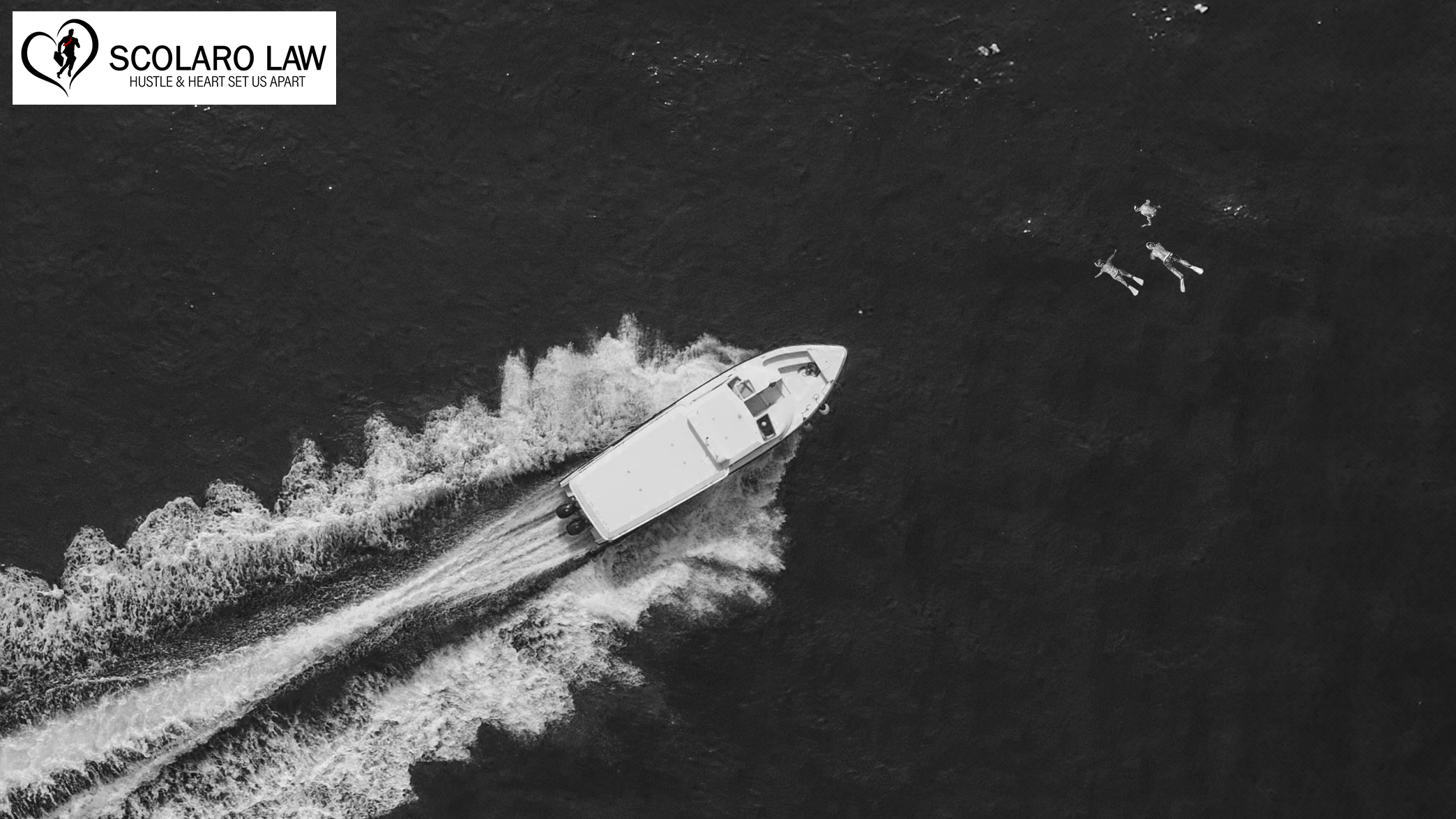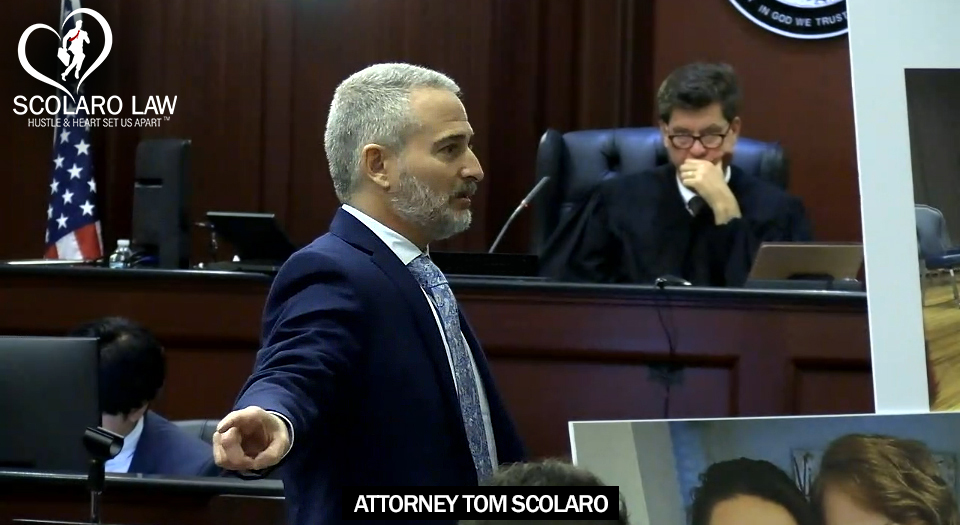
Get Started with a Free Consultation
If you were injured in an incident in Florida, contact us by filling out this form.
"*" indicates required fields
Boating Safety and Legal Implications: Lessons from Latest Florida Keys Boating Accident Involving Coast Guardsman
May 31, 2024
Last week, off Summerland Key in the Lower Keys, a boating incident involving Petty Officer 2nd Class Chase Hrynyshyn occurred. Investigators have shared information with David Goodhue, News Reporter at the Miami Herald and FLKeysNews.com.
Riding aboard a 17-foot center console Mako boat driven by a fellow service member, Hrynyshyn jumped into the water. We know that a second vessel, a 16-foot Carolina Skiff, operated by another service member, was trailing closely behind the Mako. In a terrible turn of events, the Carolina Skiff went over Hrynyshyn’s body, its propellers inflicting severe injuries to his head and leg, according to Kristen Livengood, a spokesperson for Monroe County Fire Rescue. Investigators have also indicated that this incident is alcohol-related.
The injured off-duty Coast Guardsman was initially taken to Kiki’s Sandbar and Grille on Little Torch Key before being transported by paramedics to Fishermen’s Community Hospital in Marathon, located twenty miles north of Little Torch Key in the heart of the Middle Keys. From there, the gravity of his injuries warranted further escalation, prompting the deployment of the county’s Trauma Star helicopter ambulance to airlift him to a hospital in Miami-Dade County.
We recently reported on a boating case that Boat Accident Attorney Thomas Scolaro recently handled where the mechanism of injury also involved boat propellers impacting a person in the water. The article on that case resulting in a $1.7 million settlement can be found here.
In both cases, the victims were in the water when the propellers of a boat caused catastrophic harm. The respective operators negligently maneuvered their vessels, resulting in the death and severe injury of two innocent individuals. Unlike in the wrongful death case of the minor child Tom Scolaro handled where the responsible vessel was in the lead, in Hrynyshyn’s situation, the vessel responsible for the incident was following behind. This crucial detail underscores that even before Hrynyshyn entered the water, the operator of the following vessel had or should have had their eyes on Hrynyshyn and should have taken evasive measures to avoid causing injuries. The operator was obligated to adhere to clear boating safety regulations even before Hrynyshyn jumped in the water.
Florida boat operators must follow clear rules and regulations specific to boaters. Violations carry criminal penalties and can result in inferences in civil courts depending on the circumstances surrounding an incident. Whether a vessel is too close to another vessel, fails to keep a reasonably safe and prudent distance from other vessels and individuals in the water, Florida Law provides robust regulations as detailed below.
Florida Regulations: What constitutes Careless and Reckless Boating?
Regulations for vessel operation on Florida’s waters are established by Florida Statute 327.33. Here are the key points to remember:
Reckless Operation Prohibited
It is unlawful to operate a vessel in a reckless manner. This includes operating any vessel or water sports equipment in willful or wanton disregard for the safety of persons or property, potentially endangering lives or causing property damage.
Duty of Care
Vessel operators must adhere to a standard of reasonable and prudent operation, considering factors such as other waterborne traffic, posted speed limits, and wake restrictions. Failure to operate a vessel in a reasonable and prudent manner constitutes careless operation.
Compliance with Navigation Rules
Every person operating a vessel in Florida waters must comply with navigation rules. Violations of navigation rules resulting in boating accidents causing serious bodily injury or death may result in misdemeanor charges. Lesser violations of navigation rules constitute noncriminal violations. Any and all violations can be used in civil court.
Determining Fault
The ascertainment of fault in vessel operations and boating accidents is determined according to navigation rules. These regulations aim to promote safe boating practices, prevent accidents, and protect the lives and property of individuals enjoying Florida’s waterways. It is essential for vessel operators to understand and adhere to these rules to ensure the safety of themselves and others on the water.
Does Following Too Closely Constitute Careless or Reckless Boating?
Florida Statute 327.33 serves as a cornerstone for promoting safe boating practices across the state’s waterways. One critical aspect of this statute is its prohibition against reckless or careless operation of vessels. Imagine a scenario where two vessels are navigating through a busy water channel. The lead vessel is maintaining a safe speed and distance from other boats, adhering to posted speed limits and wake restrictions as outlined by the statute. However, the vessel following closely behind fails to exercise caution, navigating at a similar rate of speed and neglecting to maintain a safe distance. This behavior not only endangers the occupants of both vessels but also poses a significant risk to other waterborne traffic in the vicinity, which constitutes reckless operating.
Florida Law mandates vessels to be operated in a reasonable and prudent manner, considering various factors such as the presence of other vessels, waterway conditions, and speed limits. In a scenario where the operator of the trailing vessel violates this statute by failing to exercise due diligence and operating in a manner likely to endanger life, limb, or property, such conduct is reckless, careless at best, because it could lead to a collision or accident, resulting in serious injury or property damage.
Boating Safety Regulations and Duties Pertaining to Swimmers
Florida Statute 327.33 outlines regulations aimed at promoting safe boating practices and preventing accidents on Florida’s waterways. One crucial aspect of this statute pertains to the duty of boat operators to ensure the safety of individuals in the water. According to the statute, boat operators must exercise caution and navigate their vessels in a reasonable and prudent manner to avoid endangering the safety of swimmers and other individuals in the water.

This requirement applies irrespective of the activity of individuals in the water, whether they are swimming, diving, or engaging in any other recreational activities. Boat operators are expected to maintain awareness of their surroundings and take appropriate measures and evasive measures to prevent accidents or injuries. This includes adhering to posted speed limits, maintaining a safe distance from swimmers, and avoiding reckless or careless maneuvers that could pose a risk to individuals in the water.
Failure to comply with these regulations constitutes reckless or careless operation of a vessel, which is punishable under Florida law and can be used in civil court.
negligence per se in boating accident cases
When a boat runs over someone in the water, it constitutes a clear instance of careless boating on its face, often without the need for further investigation. The act of operating a vessel in a manner that results in direct harm to an individual in the water inherently demonstrates a lack of due care and attention on the part of the boat operator. Such incidents typically involve a failure to observe proper lookout procedures or maintain a safe speed and distance from swimmers or individuals in the water.
In many cases, the circumstances surrounding a collision between a boat and a person in the water indicate a lack of intent to cause harm, which distinguishes careless boating from reckless boating. Careless boating generally involves negligent behavior or oversight rather than willful disregard for the safety of others. However, this distinction does not diminish the seriousness of the offense or the potential consequences for the boat operator.
Under Florida law, careless operation of a vessel is defined as operating a vessel in a manner that fails to exercise reasonable care and prudence, thereby endangering the safety of others. When a boat runs over someone in the water, it is a clear violation of this statute, regardless of the intent behind the action. Boat operators are expected to exercise caution and vigilance to avoid such incidents and to navigate their vessels safely, especially in areas where swimmers or individuals are present.
The act of a boat running over someone in the water and injuring them can be considered negligence per se under certain circumstances. Negligence per se refers to a situation where a defendant’s violation of a statute or regulation automatically constitutes negligence without the need for further proof of unreasonable conduct. In the context of boating, if a boat operator violates a relevant statute or regulation—such as operating a vessel in a careless manner—and this violation directly results in harm to an individual in the water, it may be deemed negligence per se.
However, it is essential to note that the determination of negligence per se depends on various factors, including the intent behind the violation, the behavior of the injured victim, whether alcohol is involved and the overall circumstances surrounding the incident.
Florida Law on Boating Under the Influence
Operating a vessel under the influence of alcohol or drugs poses a serious threat to the safety of individuals on the water. Florida’s law on boating under the influence, outlined in statute 327.35, sets forth the criteria and penalties for this offense.
Firstly, a person can be charged with boating under the influence if they are found to be operating a vessel while under the influence of alcoholic beverages, certain chemical substances, or controlled substances to an extent that impairs their normal faculties. Additionally, having a blood-alcohol level of 0.08 grams or more per 100 milliliters of blood, or a breath-alcohol level of 0.08 grams or more per 210 liters of breath, also constitutes boating under the influence.
In terms of drinks, a blood-alcohol level of 0.08 grams of alcohol per 100 milliliters of blood typically corresponds to about 2 to 3 standard alcoholic drinks consumed within an hour for most individuals, depending on factors such as body weight, metabolism, and tolerance.
Similarly, a breath-alcohol level of 0.08 grams of alcohol per 210 liters of breath is generally equivalent to having consumed about 2 to 3 standard alcoholic drinks within an hour, again considering individual factors.
The penalties for boating under the influence are severe to deter reckless behavior on the water. For a first conviction, individuals face fines ranging from $500 to $1,000 and imprisonment for up to 6 months. Subsequent convictions carry harsher penalties, with fines increasing to between $1,000 and $2,000 and imprisonment for up to 9 months.
These stringent penalties underscore the importance of responsible boating practices and the profound consequences of operating a vessel while impaired. Boaters should always designate a sober driver or refrain from operating a vessel if they have consumed alcohol or drugs, ensuring the safety of themselves and others enjoying Florida’s waterways.
Can a boat operator suspected of BUI refuse to submit to a test?
Boating under the influence (BUI) is a serious offense that poses significant risks to both the operator and passengers on the water. Florida Statute 327.35215 outlines the penalties for individuals who refuse to submit to tests for alcohol or drug impairment when lawfully arrested for a suspected violation of boating under the influence laws.
If a person lawfully arrested for an alleged violation of boating under the influence (BUI) refuses to submit to a blood, breath, or urine test as required by Florida Statute 327.352, they are subject to a civil penalty of $500. This penalty is imposed regardless of whether the person is ultimately convicted of BUI.
Upon refusal to submit to testing, a law enforcement officer authorized to make arrests for violations of boating laws must file a certified statement with the court. This statement attests to the officer’s probable cause for the arrest and the individual’s refusal to submit to testing. Additionally, the officer must provide a sworn statement confirming that the individual was informed of the penalties for refusal and the procedure for requesting a hearing.
Failure to pay the civil penalty or request a hearing within the specified timeframe prohibits the individual from operating a vessel in Florida waters. Violation of this provision is a first-degree misdemeanor, punishable by law.
Understanding Presumption of Impairment in Boating Under the Influence Cases
When it comes to boating under the influence (BUI), Florida Statute 327.354 provides critical guidelines for determining impairment and establishing evidentiary standards in civil or criminal proceedings related to BUI offenses.
Defining Impairment
Operating a vessel while under the influence of alcoholic beverages or controlled substances to the extent that one’s normal faculties are impaired is unlawful and punishable under Florida law. Normal faculties include various physical and mental abilities crucial for safe operation, such as vision, hearing, judgment, and reaction time.
Presumptions
The results of alcohol testing are admissible as evidence in civil or criminal proceedings arising from BUI allegations. Three presumptions are established based on blood-alcohol or breath-alcohol levels:
- A blood-alcohol level or breath-alcohol level of 0.05 or less presumes the individual was not under the influence to the extent of impairment.
- A blood-alcohol level or breath-alcohol level exceeding 0.05 but less than 0.08 does not establish presumption of impairment but may be considered along with other evidence.
- A blood-alcohol level or breath-alcohol level of 0.08 or higher is prima facie evidence of impairment, constituting a violation of operating a vessel with an unlawful alcohol level.
Admissibility of Test Results
Affidavits containing test results are admissible in court proceedings as exceptions to the hearsay rule, provided they meet specific criteria outlined in the statute. These criteria include detailing the testing procedures, time of sample collection, numerical test results, and the status of permits held by the testing personnel.

Contact Scolaro Law for a free case evaluation
The Florida boat accident attorneys at Scolaro Law have extensive experience litigating complex claims for numerous victims of injury, accidents, and negligence. Whether you or a loved one has endured serious injuries or wrongful death in a recreational or leisure boating accident due to another party’s negligence, our firm is prepared to assist you. We are committed to evaluating your claim thoroughly and representing you effectively throughout Florida, ensuring your case receives the attention it deserves. For a free case consultation, please fill out our online contact form or call our offices directly at (305) 424-2300.

